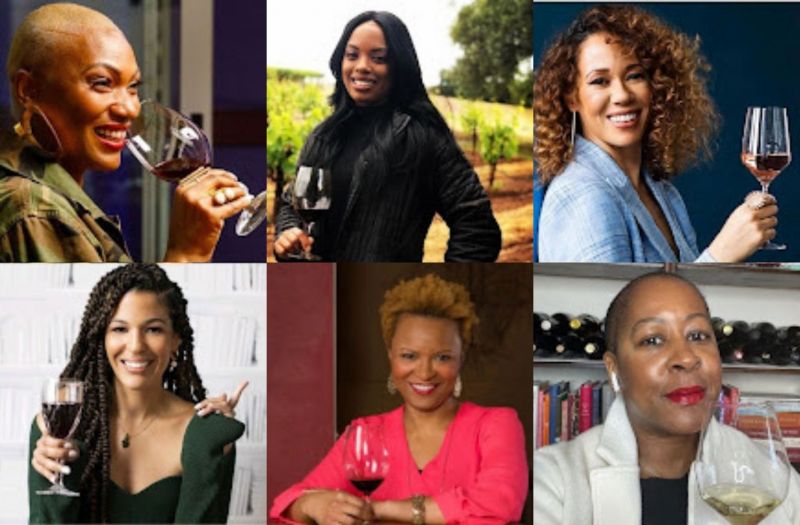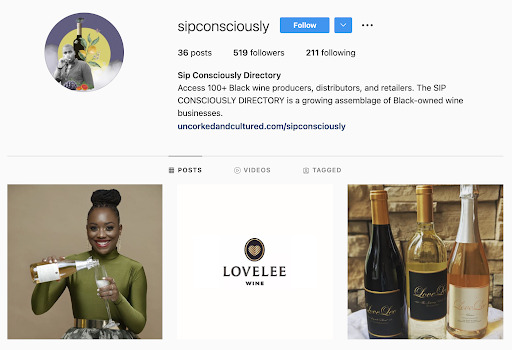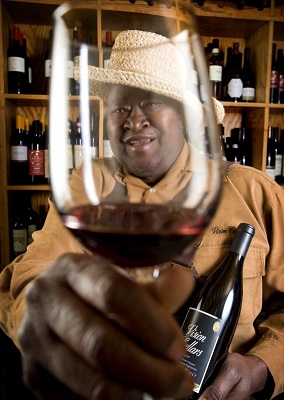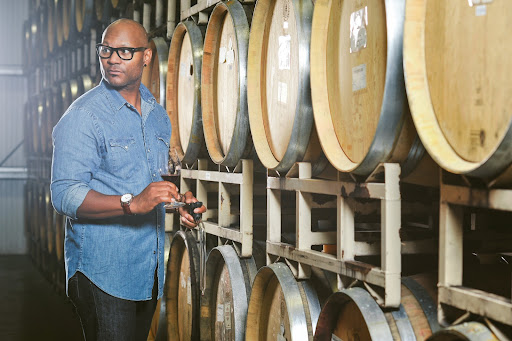Educating Sommeliers Worldwide.
By Beverage Trade Network

Being a white-dominated industry, the wine industry in the U.S. for the longest time has had only a percentage of wineries owned by the Black. Be it sommeliers, retailers, farmers, or winemakers, Black people have faced an onslaught of rejection be it latent hostilities or clear racism. Several wine professionals from the Black community have shared the obvious racism and isolation they went through during trade tastings as well as on the business upfront. In light of the Black Lives Matters protests in 2020, there has been a rage among the many industries in the U.S. to recognize the Black community and build a diverse workforce. The movement has stirred change for racial progress to accentuate many sectors of the American economy. It has led to a slow-growing active movement within the food and wine industry to acknowledge the Black-owned businesses and emphasize Black entrepreneurs and workers.
[[relatedPurchasesItems-41]]
While some companies were agile in putting out statements after the death of George Floyd, many others were occupied in hiring a diverse workforce and supporting the Black employees. Black-owned wineries in the U.S. are constantly raising awareness of their brands and inspiring the younger people of color to enter this industry. However, factors like systematic racism, lack of promotion, sales distribution compounded with implicit bias, and invisibility have affected the growth of Black winemakers.
Despite these factors holding them back, Black-owned wine labels have hit the ground running from the temperature climates of California to the rolling plains of Oregon in the U.S. These revolutionary Black winemakers and Black-owned wineries are making sure to hold the door open for people of their community who are impending to learn more about wine and the wine industry. Some of these progressive wine professionals have worked effortlessly to uplift the Black community. They are on a mission to grow the percentage of the wineries owned by the Black and intensify the efforts for the BIPOC (Black, Indigenous, and People of Color) community.
Founder of the Woburn Winery, John June Lewis Sr. was the first Black American winemaker in the U.S. who fell in love with wine while he was posted in France during the First World War. After the prohibition ended, he took over the land in Clarksville, Virginia, and began growing his grapes in 1933. The Woburn Winery was then opened in 1940 and was the only winery in Virginia to produce wine solely from its own grapes and also the only winery owned by an African American during that time. Unfortunately, he passed away in 1974 after inspiring many Black winemakers.
Angela McCrae and Dr. Monique Bell, both graduates from Morgan State University started an initiative by the name Sip Consciously Directory. Angela, the founder of Uncorked & Cultured, and Dr. Bell, a professor of wine and culture research, created a comprehensive resource directory of more than 100 Black entrepreneurs in the three-tier wine distribution chain in the U.S. Their focus was to enhance the visibility of the Black-owned brands, distributors, and retailers and connect them with wine lovers. Another radical woman in this business has been Julia Coney who is a wine writer and educator based in Houston and Washington D.C. She created a database, Black Wine Professionals, which is a resource for the wine industry employers and gatekeepers, professionals, and the food and beverage community who are looking to diversify their workforce. The website includes job listings and postings, event listings, educational resources, and a discussion forum where Black people from the industry can connect.
The Roots Fund is another example that aims at nourishing and enriching the lives of communities of color in the wine industry. They help people from these communities through donations or by providing them wine education, mentorship, or job placement. Tahiirah Habibi, a sommelier, and founder of The Hue Society, started this venture to create a safe place for BIPOC to learn, explore, and be a part of the wine culture. Their focus is to create a community that facilitates economic access and education to wine through culturally relevant experiences.

Image Source - @sipconciously on Instagram.com
The African American Vintners Association (AAAV) was founded in 2002 by a group of winemakers to bring visibility to the Black members in the wine industry. It is a non-profit organization that promotes awareness of African American vintners and creates a deeper sense of community among its members to reach out to wine consumers. AAAV also helps the African Americans who want to pursue a career in the wine industry by offering them Black Winemakers Scholarship Fund. It was founded by Mac McDonald, the founder of Vision Cellars, along with three winemakers, Bates, Vance Sharp, and Charlie Wagner. Phil Long, the owner of Longevity Winery in the California Bay Area, is the current president of AAAV. He has published a documentary “Journey between the Vines: The Black Winemaker’s Story”, a film that follows the lives of six Black winemakers and vineyard owners who embark on cultivating extraordinary wines. He hopes to raise awareness about Black wine entrepreneurship through this documentary.

Mac McDonald, founder of Vision Cellars; Image Source - Vision Cellar
Several Black-owned wineries and winemakers have also been a major part of the Black community in the wine industry. One of them is Ires Rideau, the former owner of the Rideau Vineyard. She was one of the entrepreneurs and social activists from New Orleans who purchased six acres of land in the Santa Ynez Valley and further expanded the vineyards to 24 acres. She was also the first Creole American and Black woman to own and operate a winery in the U.S. Deneen, David, and Coral Brown are the owners of The Brown Estate which was the first Black-owned vineyard in the famous wine region of Napa, California. It started by providing grapes to other local wineries.

McBride Sisters (Andrea Mcbride and Robin McBride); Image Source - McBride Sisters
Robin McBride and Andréa McBride, famously known as the McBride Sisters are another preeminent Black-owned and woman-owned wine company in the U.S. They both grew up in different wine regions that were a world apart - Monterrey, California, and Marlborough, New Zealand. They connected over their love for wine and went on a mission of inclusivity and sustainability in the wine industry. One of their famous projects was the Black Girl Magic Collection which was initiated to encourage consumers to support Black-owned brands.
André Hueston Mack is another star of the Black community who was the first Black American to be named as the Best Young Sommelier in America in 2003 and the Runner-Up of the Best Sommelier in North America (2004). He is the owner and winemaker of Maison Noir Wines in Oregon where he makes fabulous wine with stunning hip-hop-themed labels and names that attract the younger generation of wine lovers.

Sommelier André Hueston Mack; Image Source - The Connected Table
Shae Frichette, another Black winemaker and part-owner of the Frichette Winery in Red Mountain AVA, followed a similar path in the wine industry. She launched the Frichette Winery and is the only Black woman winemaker in the state of Washington. She has grown her estate to five acres and produces approximately 2000 wine cases every year. With a new take on the wine industry, James and Janet Moss learned the art of winemaking for over a decade and now run a Black-owned winery in Napa Valley by the name J.Moss Winery which they opened in 2011. They specialize in small batches of Cabernet Sauvignon and run their business as a close family affair.
Many large wine companies like Gallo and Heitz Cellar have also paid close attention to diversifying their workforce. Gallo recently hired Brenae Royal, a Black woman wine professional, to manage their historic 575-acre Monte Rosso Vineyard in Sonoma. Heitz Cellars, a historic Napa Valley wine producer also hired Carlton McCoy Jr. as the President and Chief Executive. He is one of the three African American Master Sommeliers and has been handling Heitz Cellars since 2018.
With so many initiatives being taken by the Black community in the wine industry, it isn’t far when half of the wineries in the U.S. would be owned by them. The last two decades have already brought Black winemakers and owners to greater eminence than in the past. Large wine companies and wine institutions are paying great attention to a larger diversity in their establishments. The Black community is all set to move onwards and upwards now more than ever.
Article by Shreya Kohli, Beverage Trade Network